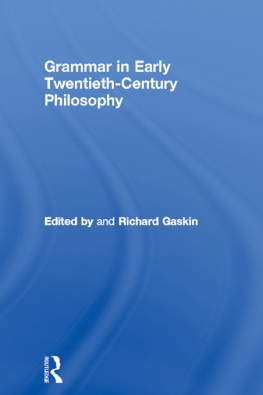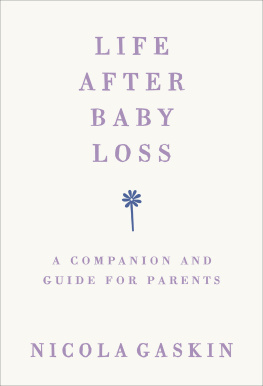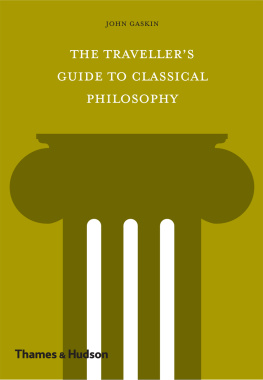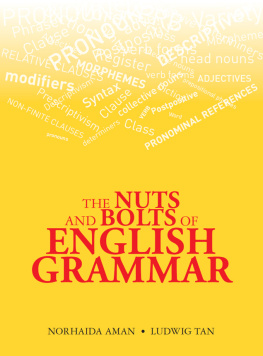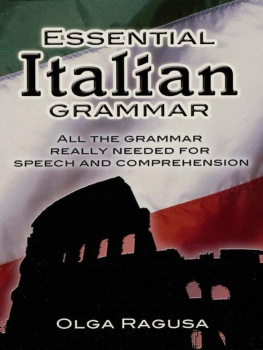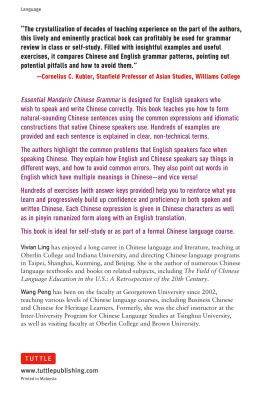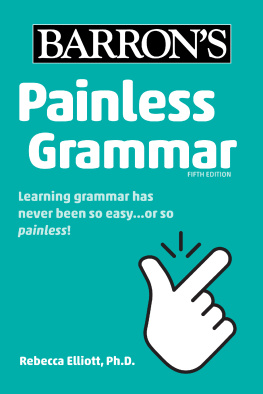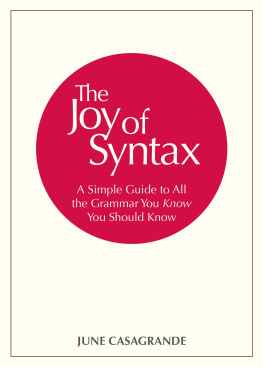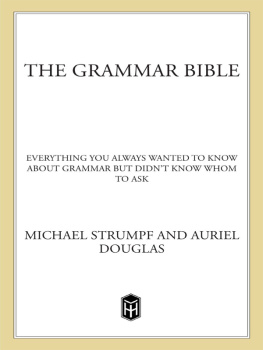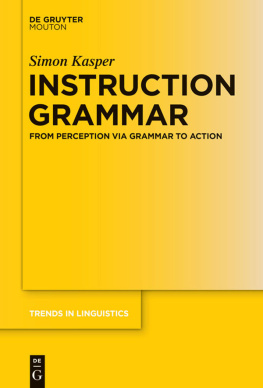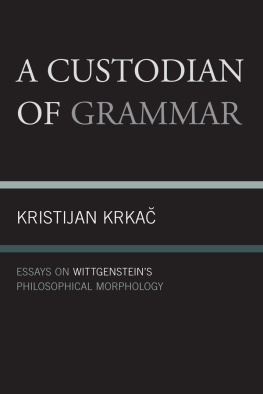
Grammar in Early Twentieth-Century Philosophy
What is the philosophical significance of grammar? No period in the history of philosophy provides a richer source of materials for the consideration of this question than the period running from the end of the nineteenth century to the Second World War.
In this book, ten essays examine the contributions made to the issue of the philosophical significance of grammar by Frege, Russell, Bradley, Husserl, Wittgenstein, Carnap, and Heidegger. The substantial introduction presents the reader with a systematic perspective on some of the issues explored by these philosophers. The questions raised by these philosophers include the following: If language is about the world, and language is governed by grammar, can the world be said to have a kind of grammar also? If so, what does this grammar look like? Is such a grammar a reflection of some empirical language, or perhaps an idealization of grammatical features of empirical language? Is there a privileged grammar of a natural or artificial language which we can regard as providing us with a unique and privileged access to the metaphysical structure of the world?
This book consists of major research papers written by a team of specialists, all but one published here for the first time. It will be of interest not only to established scholars working in metaphysics and the philosophy of language, but also to graduates and advanced undergraduates specializing in these areas.
Richard Gaskin is Professor of Philosophy at the University of Liverpool, and has held visiting appointments at the Universities of Edinburgh, Mainz and Bonn. He has extensive publications in ancient, medieval and modern metaphysics and philosophy of language, including The Sea Battle and the Master Argument: Aristotle and Diodorus Cronus on the Metaphysics of the Future (Walter de Gruyter, 1995).
Routledge studies in twentieth-century philosophy
1 The Story of Analytic Philosophy
Plot and heroes
Edited by Anat Biletzki and Anat Matar
2 Donald Davidson
Truth, meaning and knowledge
Edited by Urszula M. Zegln
3 Philosophy and Ordinary Language
The bent and genius of our tongue
Oswald Hanfling
4 The Subject in Question
Sartres critique of Husserl in The Transcendence of the Ego
Stephen Priest
5 Aesthetic Order
A philosophy of order, beauty and art
Ruth Lorland
6 Naturalism
A critical analysis
Edited by William Lane Craig and J. P. Moreland
7 Grammar in Early Twentieth-Century Philosophy
Edited by Richard Gaskin
8 Peter Winchs Philosophy of the Social Sciences
Rules, magic and instrumental reason
Berel Dov Lerner
Grammar in Early Twentieth-Century Philosophy
Edited by Richard Gaskin

First published 2001
by Routledge
11 New Fetter Lane, London EC4P 4EE
Simultaneously published in the USA and Canada
by Routledge
29 West 35th Street, New York, NY 10001
Routledge is an imprint of the Taylor & Francis Group
This edition published in the Taylor & Francis e-Library, 2002.
Selection and editorial matter 2001 Richard Gaskin; individual chapters the contributors
All rights reserved. No part of this book may be reprinted or reproduced or utilized in any form or by any electronic, mechanical, or other means, now known or hereafter invented, including photocopying and recording, or in any information storage or retrieval system, without permission in writing from the publishers.
British Library Cataloguing in Publication Data
A catalogue record for this book is available from the British Library.
Library of Congress Cataloging in Publication Data
Grammar in early twentieth-century philosophy/edited by
Richard Gaskin.
p.cm.
Includes bibliographical references and index.
1. Grammar, comparative and general. 2. Philosophy,
Modern20th century. I. Gaskin, Richard, 1960
P157.G73 2001
415.01dc21
00051720
ISBN 0415224462 (Print Edition)
ISBN 0-203-20850-1 Master e-book ISBN
ISBN 0-203-20853-6 (Glassbook Format)
Contents
Contributors
Stewart Candlish is Professor of Philosophy at the University of Western Australia and a Fellow of the Australian Academy of the Humanities. He has published numerous articles on metaphysics, philosophical logic, and the history of philosophy, especially on the philosophies of Bradley, Russell, and Wittgenstein, including The Unity of the Proposition and Russells Theories of Judgment (1996) and Identifying the Identity Theory of Truth (1999).
Gary Ebbs is Assistant Professor of Philosophy at the University of Illinois at Urbana-Champaign. He has published articles on metaphysics and the philosophy of language, including Can We Take Our Words at Face Value? (1996). His book Rule-Following and Realism appeared in 1997.
Richard Gaskin is Professor of Philosophy at the University of Liverpool. He works on ancient, medieval, and modern metaphysics and philosophy of language. His publications include The Sea Battle and the Master Argument: Aristotle and Diodorus Cronus on the Metaphysics of the Future (1995) and Simplicius on Aristotle Categories 915 (2000).
James Levine is Lecturer in Philosophy at Trinity College, Dublin. He works largely in the area of early analytic philosophy, but has also published papers on Bradley, Putnam, and Davidson. His articles include Acquaintance, Denoting Concepts, and Sense (1998).
Richard Mendelsohn is Professor of Philosophy at the City University of New York. He has published articles on logic and the history of philosophy, in particular on the philosophy of Frege, and is the joint author, with M. Fitting, of First-Order Modal Logic (2000).
Alex Oliver is University Lecturer in Philosophy at the University of Cambridge and a Fellow of Queens College. He has published papers on metaphysics, philosophical logic, and the philosophy of mathematics, and is joint editor, with D. H. Mellor, of Properties (1997). He is currently writing a book with T. Smiley on the logic of plurals.
Graham Priest is Boyce Gibson Professor of Philosophy at the University of Melbourne, Arche Professorial Fellow in the Department of Logic and Metaphysics, the University of St Andrews, and a Fellow of the Australian Academy of the Humanities. His publications include In Contradiction (1987), Beyond the Limits of Thought (1995), and An Introduction to Non-Classical Logic (2001). In addition, he has published numerous papers on logic, metaphysics, and the history of philosophy.
Ian Proops is Assistant Professor of Philosophy at the University of Michigan. He recently completed a Ph.D. thesis on logic and language in Wittgensteins Tractatus and has a number of published and forthcoming articles on Wittgensteins early philosophy, including The Early Wittgenstein on Logical Assertion (1998).
Bede Rundle is a Fellow of Trinity College, Oxford, and has published extensively on metaphysics and the philosophy of language. His books include: Grammar in Philosophy (1979), Wittgenstein and Contemporary Philosophy of Language (1990), Facts (1993), and
Next page
